
Dr Christopher Holliday
Senior Lecturer in Liberal Arts and Visual Cultures Education
- Deputy Director, Department of Interdisciplinary Humanities
Biography
Christopher is Senior Lecturer in Liberal Arts and Visual Cultures Education, and the Deputy Director and Education Lead of the Department of Interdisciplinary Humanities. He gained his PhD in Film Studies from King’s College London (2013), having previously been an undergraduate and postgraduate student at the University of Warwick where he graduated with a First-Class BA Honours degree in Film and Television Studies (2006) and an MA for Research in Film and Television Studies with Distinction (2008). Christopher has taught Film, Media, and Cultural Studies at a variety of UK universities, including at King’s as a Teaching Fellow (2015-2017) in the Department of Film Studies, and at the University of Kent (2014), University of Surrey (2015), and as part of the BA Film Practice course at London South Bank University (2013-2015). He is currently a visiting lecturer at the London Film Academy and consultant for the New York-based animation consulting studio Story Critters. In Spring 2025, Christopher was a visiting lecturer in the Department of Film Studies and Audiovisual Culture at Masaryk University.
Research interests and PhD supervision
- popular Hollywood cinema
- digital media and film technology
- animation history and theory
- visual effects imagery
- cultural politics of popular media
Christopher’s research is largely concerned with digital media technologies and forms of computer animation in contemporary visual culture. He is specifically interested in Hollywood cinema’s multiple encounters with digital elements and effects. Christopher’s first monograph The Computer-Animated Film: Industry, Style and Genre (Edinburgh University Press, 2018) was the first academic work to examine the computer-animated feature film as a global phenomenon of popular cinema. It was shortlisted for the international Society for Animation Studies 2019 McLaren-Lambart Award for the Best Scholarly Book on Animation. In 2018, Christopher co-edited the collection Fantasy/Animation: Connections Between Media, Mediums and Genres for Routledge’s AFI Film Readers series, which considers the various historical, theoretical and cultural dimensions of the animated fantasy. The book was awarded the British Association of Film, Television and Screen Studies (BAFTSS) Runner-Up prize for Best Edited Collection in 2019. His most recent book was the edited collection Snow White and the Seven Dwarfs: New Perspectives on Production, Reception, Legacy (2021) published as part of Bloomsbury’s Animation: Key Films/Filmmakers series. The anthology explores the enduring qualities that have marked Snow White’s influence and legacy, as well as the film’s central place within the history of global animation.
Christopher continues to publish widely on Hollywood cinema, popular animation, and digital media. His work has appeared in Animation Practice, Process & Production, animation: an interdisciplinary journal, Convergence: The International Journal of Research into New Media Technologies, Journal of British Cinema and Television, Journal of Cinema and Media Studies, Journal of Early Popular Visual Culture, Journal of Popular Film and Television, and The London Journal. He has also written on animation and contemporary media culture for The Independent; on the Impakter, Peephole Journal, The Conversation, In Media Res and Critical Studies in Television websites; and for the popular film publication Total Film and MUBI’s Notebook magazine. He is also a regular contributor to the international Society of Animation Studies blog animationstudies2.0.
Christopher’s new monograph, Smart Stardom: Advanced Digital Technologies and the Replication of Celebrity (co-written with Sarah Thomas), will be published as part of the Routledge Focus on Digital Media and Culture series. He is also currently co-editing two critical anthologies. The first is focused on characters and aesthetics in animation as part of the four-volume Encyclopedia of Animation Studies series, to be published with Bloomsbury in 2026. The second is an interdisciplinary examination of the connections between animation as an industrial and creative art form and studies of performance.
Christopher is the co-founder and curator of http://www.fantasy-animation.org, a collaborative and open access educational resource that examines the relationship between fantasy cinema and the medium of animation. The website publishes a weekly blog and podcast that has featured numerous interviews with guests from the worlds of academia, film journalism, film curation and archiving, the global VFX and Hollywood animation industries, stop-motion animation, graphic illustration, and organized fan communities. The podcast has featured on Apple’s “Top Film and TV” podcast lists in over 20 countries, and in December 2020, was recommended as the Film Stories magazine’s British Movie Podcast of the week.
For more details and a complete list of Christopher’s publications, please see his full research profile.
Selected publications
- “Ghosts in the Celluloid: AI Video Dubbing and TrueSync,” JCMS: Journal of Cinema and Media Studies 64, no. 1 (‘In Focus: AI and the Moving Image’ dossier, ed. Mihaela Mihailova) (Fall 2024): 175–182.
- “Towards an Anti-Racist Syllabus: Inclusive Pedagogy in Animation Studies and Beyond,” Film Education Journal (August 2023), available here.
- “Walt’s Art History: Late Style, Digital Aesthetics and the ‘Disney Baroque’,” animation: an interdisciplinary journal 18, no. 1 (March 2023): 78–95.
- “Retroframing the Future: Digital De-Aging Technologies in Contemporary Hollywood Cinema,” JCMS: Journal of Cinema and Media Studies 61, no. 5 (2022): 210–237.
- “Rewriting the Stars: Surface Tensions and Gender Troubles in the Online Media Production of Digital Deepfakes,” Convergence: The International Journal of Research into New Media Technologies 27, no. 4: The Digital Face and Deep Fakes on Screen (2021): 899–918.
Teaching
Christopher has convened multiple courses at undergraduate and postgraduate level with a particular emphasis on interdisciplinary enquiry and historical, contextual, and theoretical approaches to screen media, visual cultures, and forms of creative production. This includes modules in the areas of popular US cinema, classical film theory, cities on screen, film genre, international film history, and the theory and spectatorship of animated media. He currently teaches across the core interdisciplinary modules on the BA Liberal Arts, the online MA in Global Cultures (MAGC), and Cultural Competency units within the Department of Interdisciplinary Humanities. He convenes the second-year core module Space, Power, Agency as part of the BA Liberal Arts programme, and his opportunity module, From Innovation to Illusion: Topics in Animation, is currently available to students across the Faculty of Arts and Humanities.
In 2016, Christopher was awarded the prestigious ‘Innovation in Teaching’ prize at the Arts & Humanities Teaching Excellence Awards for his work across both Film Studies and Liberal Arts programmes. He is also a Fellow of the Higher Education Academy (FHEA).
Expertise & public engagement
Christopher has spoken widely on popular culture, animation history, Hollywood cinema, and contemporary digital technology at various events, screenings, festivals, and academic institutions around the world. He has been invited to discuss his research and teaching practice at the Universities of Surrey, Southampton, East Anglia, Wolverhampton, Reading, Bristol, and Nottingham, and at the Leeds Humanities Research Institute, Teesside University, Birkbeck University, London South Bank University, Queen’s University Belfast, the Centre for Contemporary Arts Glasgow (UK), Sciences Po (France), Leuphana Universität Lüneburg (Germany), and the Lycée Français De New York (US). He has also presented at conferences held in the US (Seattle, New Orleans, Boston, Chicago), at the University of Zagreb (Croatia), Concordia University (Canada), Universidade lusófona de humanidades e tecnologias (Portugal), and given invited lectures at the University of Groningen (the Netherlands), Università degli Studi di Udine (Italy), Erzurum Metropolitan Municipality İbrahim Erkal Dadaş Culture and Art Center (Turkey), University of Oulu (Finland), EF Academy Pasadena, and Radford University (US), The Australian National University, and British University in Egypt.
Christopher has collaborated with the Barbican, British Film Institute, British Library, The Book Club, Canterbury Anifest, Cinema Museum, Genesis Cinema, and the London Anime & Gaming Convention, and was an invited panellist at the 2024 Annecy Film Festival in France. He has also been interviewed for The Guardian, The New Statesman, BBC News, BBC Culture, BBC Business Today, BBC Talking Business, MoviesIE, and Creative Bloq, and for several BBC Radio programmes. He has also appeared on the BBC Arts website and interviewed for international arts review programme Showcase TRT discussing Walt Disney animation and US animator and illustrator Gene Deitch. Christopher currently sits on the editorial board of animation: an interdisciplinary journal where he has also been one of its Associate Editors since 2018, and in early 2021 joined the Advisory Board for Bloomsbury’s Animation: Key Films/Filmmakers series. He is a reviewer for several international publishers (University of California Press, Edinburgh University Press, Oxford University Press, Routledge, Rutgers University Press) and for the Czech and Israel Science Foundations (2022-), and is an assessor for the Research Fellowships Competition at Gonville & Caius College, Cambridge (2019-), Irish Research Council (IRC) (2021-), and the NIAS Fellowship, Royal Netherlands Academy of Arts and Sciences (2021-).
Research
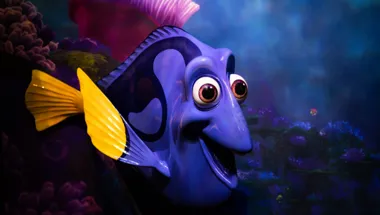
Fantasy/Animation
Fantasy/Animation is a collaborative, open access online educational resource that examines the relationship between fantasy cinema and the medium of animation.
Project status: Ongoing
News
COMMENT: Will the new James Bond embrace hi-tech gadgets in an age of AI? The films have a complicated history with technology
Development of a new James Bond film is underway at Amazon Studios, with the creater of Peaky Blinders, Steven Knight, now attached to write the screenplay,...

COMMENT: In the age of AI, Wallace and Gromit's claymation style remains a festive favourite
A new Wallace and Gromit adventure, Vengeance Most Fowl (2024), premieres on BBC One and Netflix this Christmas Day. It’s been nearly 20 years since the last...
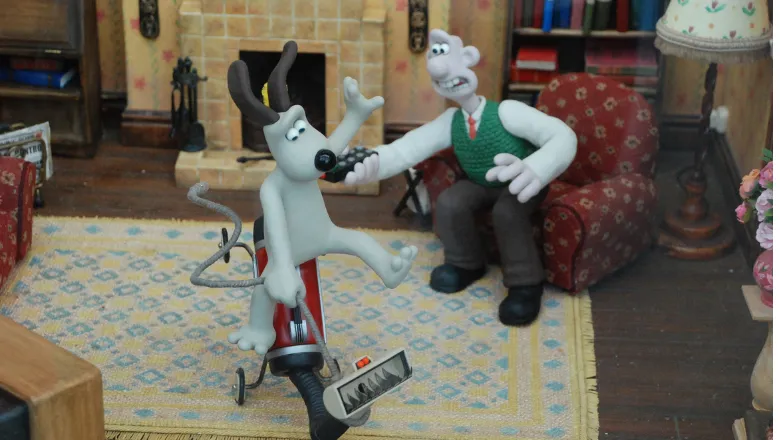
AI technology could threaten actors' control over own likeness
While AI can unlock films for worldwide audiences, lack of regulation around the technology could lead to actors losing control over their image and voice, a...
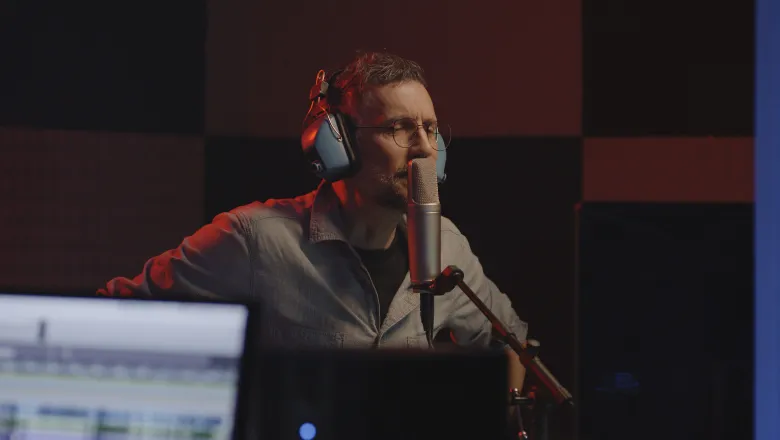
Snow White's cultural legacy explored in new book
A new book exploring the cultural legacy and influence of Snow White has been published, co-authored by Dr Christopher Holliday of Liberal Arts and Film...
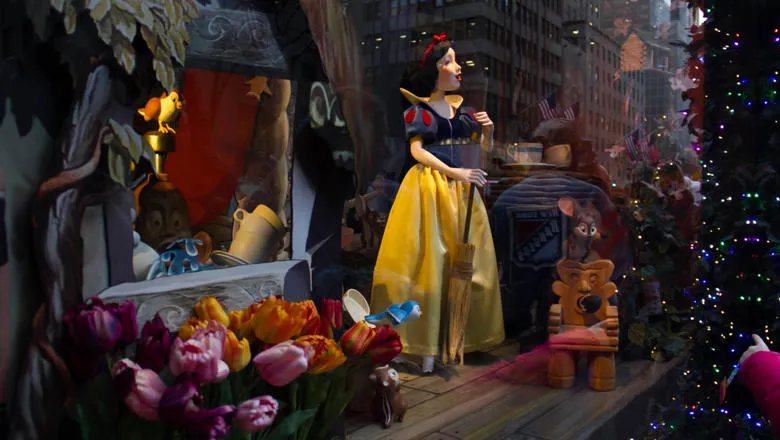
Events
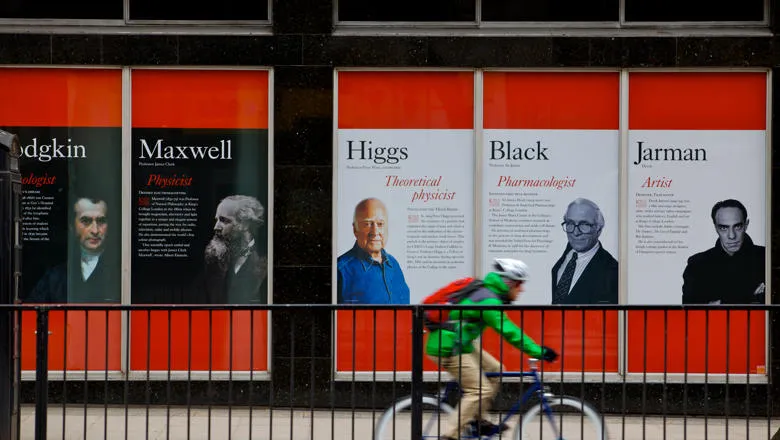
From Mickey to Malabou: Plasmaticness, Plasticity, and the Limits of Formation
Dr Christopher Holliday and Dr Benjamin Dalton present the Department of French research seminar
Please note: this event has passed.
Features
Student shares experience of Interdisciplinary Humanities PhD support at King's
Markus Beeken, who is working on a PhD in Film Studies, shares how the nature of his research subject lends itself to supervision from an Interdisciplinary...
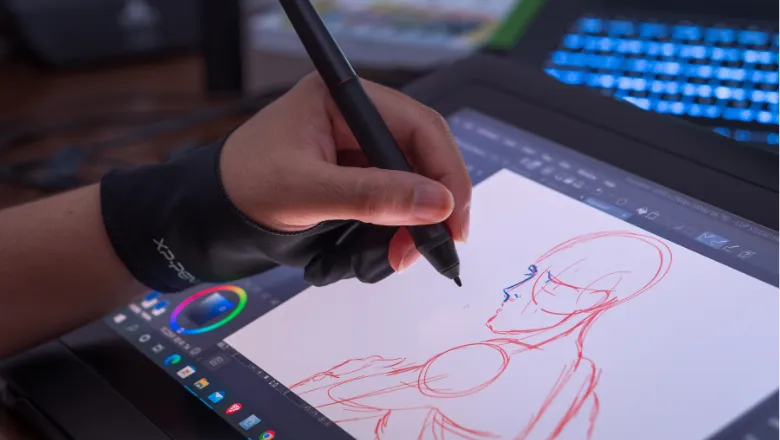
Not yet James Bond's Time to Die: can 007 survive his latest big-screen chapter?
Dr Christopher Holliday from the Department of Interdisciplinary Humanities asks what the James Bond franchise will look like with Denis Villeneuve at the helm.

Academia by ear: animating global cultures
Dr Christopher Holliday explores the correlation between the Global Cultures MA and his research into fantasy animation.
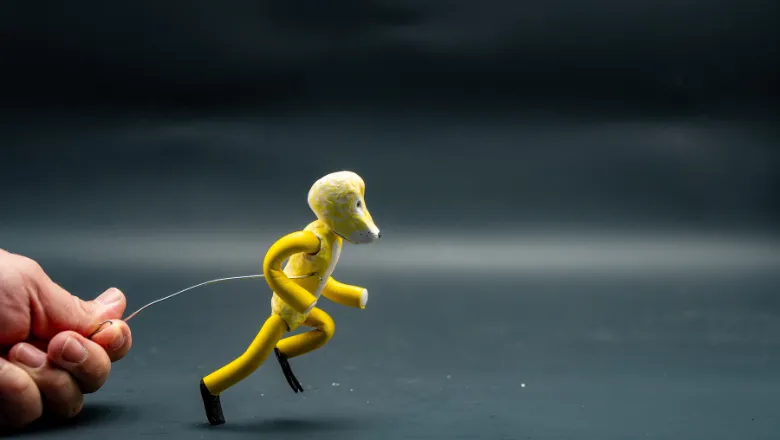
Face to interface
How could the latest lip-syncing software transform animated film? Dr Christopher Holliday discusses manipulative technologies and novel machine learning...

After Disney closed one of its major studios, animation is under pressure in pandemic Hollywood
Walt Disney Company’s Blue Sky Studios' sudden demise after 34 years will undoubtedly rob popular cinema of one of its most creative and imaginative studios.
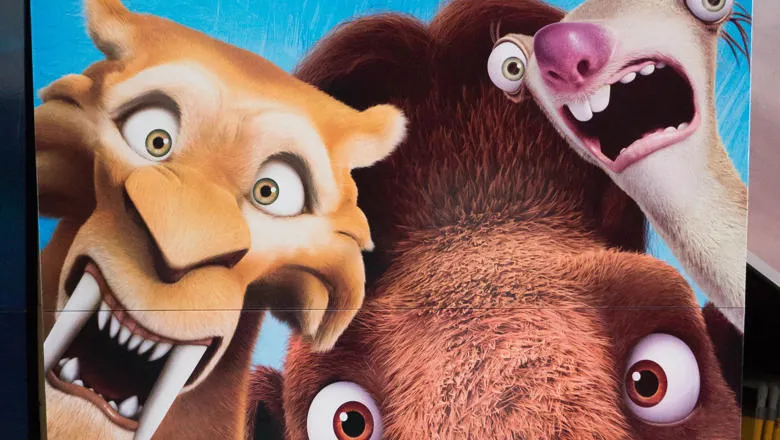
Research

Fantasy/Animation
Fantasy/Animation is a collaborative, open access online educational resource that examines the relationship between fantasy cinema and the medium of animation.
Project status: Ongoing
News
COMMENT: Will the new James Bond embrace hi-tech gadgets in an age of AI? The films have a complicated history with technology
Development of a new James Bond film is underway at Amazon Studios, with the creater of Peaky Blinders, Steven Knight, now attached to write the screenplay,...

COMMENT: In the age of AI, Wallace and Gromit's claymation style remains a festive favourite
A new Wallace and Gromit adventure, Vengeance Most Fowl (2024), premieres on BBC One and Netflix this Christmas Day. It’s been nearly 20 years since the last...

AI technology could threaten actors' control over own likeness
While AI can unlock films for worldwide audiences, lack of regulation around the technology could lead to actors losing control over their image and voice, a...

Snow White's cultural legacy explored in new book
A new book exploring the cultural legacy and influence of Snow White has been published, co-authored by Dr Christopher Holliday of Liberal Arts and Film...

Events

From Mickey to Malabou: Plasmaticness, Plasticity, and the Limits of Formation
Dr Christopher Holliday and Dr Benjamin Dalton present the Department of French research seminar
Please note: this event has passed.
Features
Student shares experience of Interdisciplinary Humanities PhD support at King's
Markus Beeken, who is working on a PhD in Film Studies, shares how the nature of his research subject lends itself to supervision from an Interdisciplinary...

Not yet James Bond's Time to Die: can 007 survive his latest big-screen chapter?
Dr Christopher Holliday from the Department of Interdisciplinary Humanities asks what the James Bond franchise will look like with Denis Villeneuve at the helm.

Academia by ear: animating global cultures
Dr Christopher Holliday explores the correlation between the Global Cultures MA and his research into fantasy animation.

Face to interface
How could the latest lip-syncing software transform animated film? Dr Christopher Holliday discusses manipulative technologies and novel machine learning...

After Disney closed one of its major studios, animation is under pressure in pandemic Hollywood
Walt Disney Company’s Blue Sky Studios' sudden demise after 34 years will undoubtedly rob popular cinema of one of its most creative and imaginative studios.

